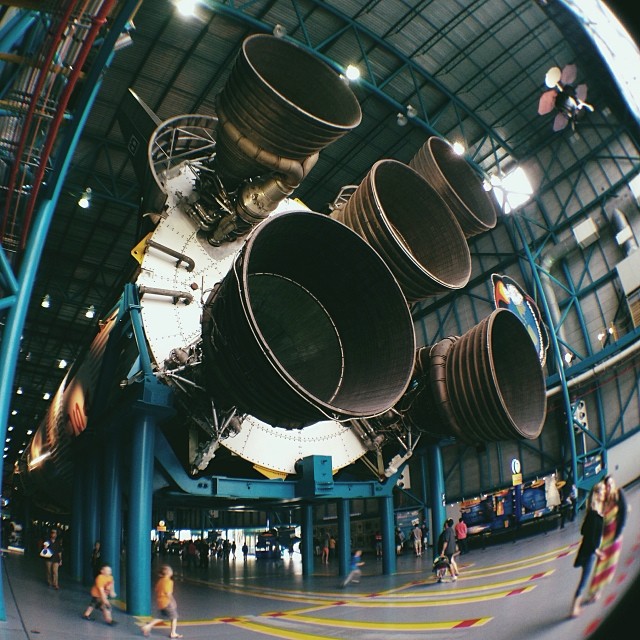Space is the place. Again.
And SoundCloud is now a place you can find sounds from the US government space agency, NASA. In addition to the requisite vocal clips (“Houston, we’ve had a problem” and “The Eagle has landed”), you get a lot more. There are rocket sounds, the chirps of satellites and equipment, lightning on Jupiter, interstellar plasma and radio emissions. And in one nod to humanity, and not just American humanity, there’s the Soviet satellite Sputnik (among many projects that are international in nature).
Many of these sounds were available before; I’ve actually used a number of them in my own music. But putting them on SoundCloud makes them much easier to browse and find, and there are download links. Have a listen below.
Another thing: you’re free to use all of these sounds as you wish, because NASA’s own audio isn’t copyrighted. It’s meant to be a public service to the American people of their taxpayer-funded government program, but that extends to everyone. There are some restrictions – not everything NASA publishes is covered by the same license, though it appears to be on SoundCloud. And you aren’t free to use NASA’s name or logo or imply commercial endorsement. (The Eagle didn’t land on a bag of Doritos.) But that means just about any imaginable musical application is fair game. They do ask you to list NASA as source, but that’s only reasonable. Read their content guidelines for full details.
Let the space remixing begin.
European Space Agency, your move.
Update: ESA has started posting downloadable sounds on SoundCloud! Best of all, these include lots of new materials – and they’re under a more permissive Creative Commons – Attribution – Share Alike license!
Have you made music with space sounds? Let us know in comments.
More Sounds
Want more?
It’s slower to browse, but there’s an even bigger library on Archive.org.
They’re all marked public domain (which is almost certainly the correct license for the above, not Non-Commercial Creative Commons).
It gets weird. For instance, here’s a 1970 comedy skit, produced in-house. And it gets obscure – like briefing audio from a recent ISS mission. But there are some gems in there, too.
NASA also has a small page of sounds that seems to be the basis of the above, but the Archive.org collection is bigger.
The European Space Agency has its own set of sounds, though like NASA, ESA could do some more archival work! (Some of these come from NASA, too.)
The University of Iowa has a selection of space sounds:
Space Audio
The “space sounds” phenomenon here is fascinating: these are radio emissions, but in the audible spectrum – that is, there’s no remapping. You’re listening to a direct recording of those radio signals at their real frequencies, which happen to be ones you can hear. NASA explains how Iowa’s instruments work:
Sounds of Space: New ‘Chorus’ Recording By RBSP’s EMFISIS Instrument
This same technique is the topic of a TED talk (as Professor Donald Gurnett had championed at Iowa):
Artist-technologist Honor Harger listens to the weird and wonderful noises of stars and planets and pulsars. In her work, she tracks the radio waves emitted by ancient celestial objects and turns them into sound, including “the oldest song you will ever hear,” the sound of cosmic rays left over from the Big Bang.
Comments
And yes, in response to comments:
1. Almost certainly, the Creative Commons Non-Commercial license is a mistake – a misunderstanding of how CC works, or confusion with the SoundCloud metadata, or both. (I’m guessing they chose Non-Commercial because NASA doesn’t allow commercial endorsement, but that’s not actually what the CC license is dealing with – and these sounds were already released into the public domain. CC licenses require copyright, which they lack.)
2. Higher-quality audio would be nice. NASA has it, but uploading archival materials requires lots of resources the agency doesn’t have. Research grant, someone? Or should CDM just publish from Houston for a few months and I’ll work on it?
